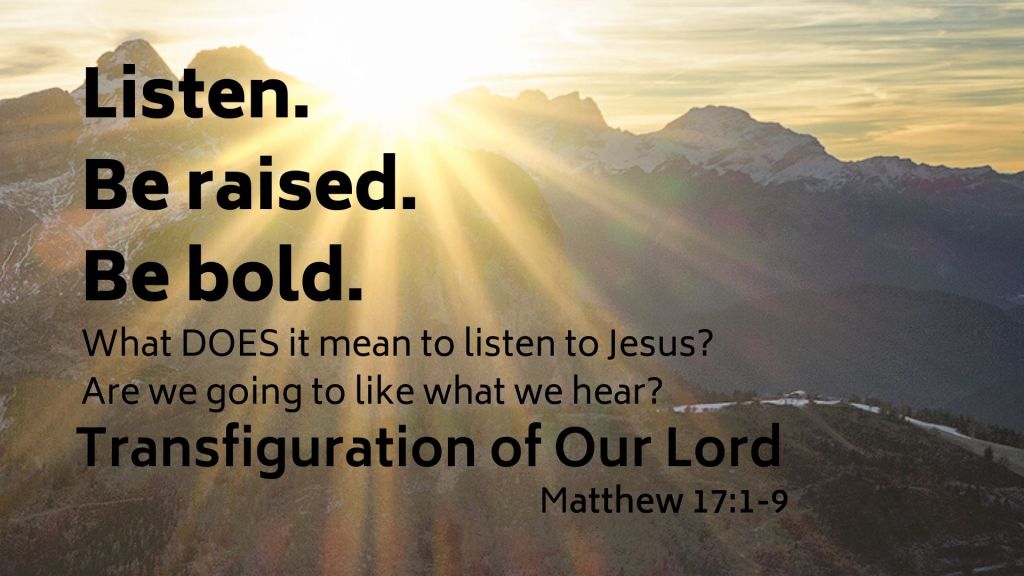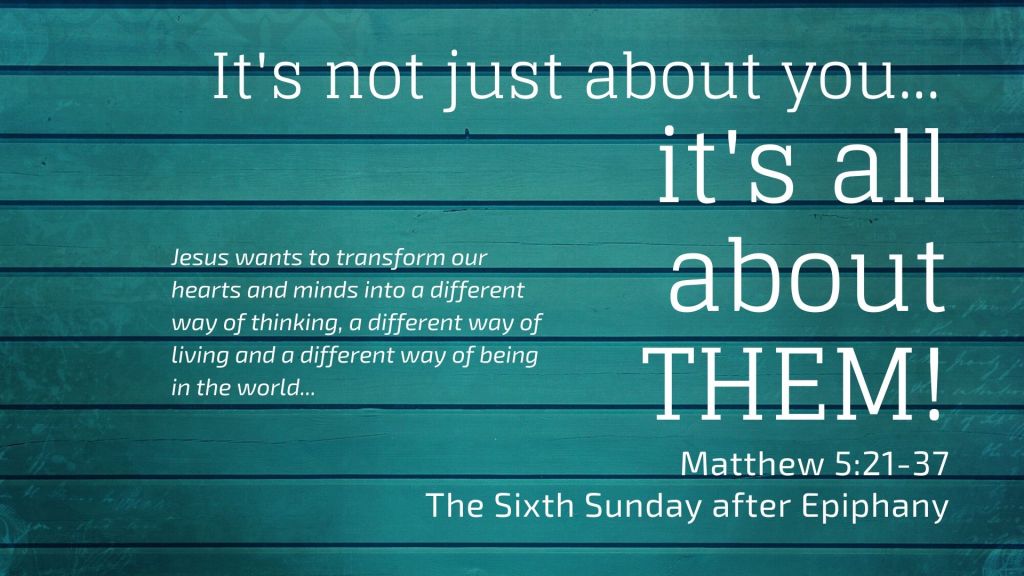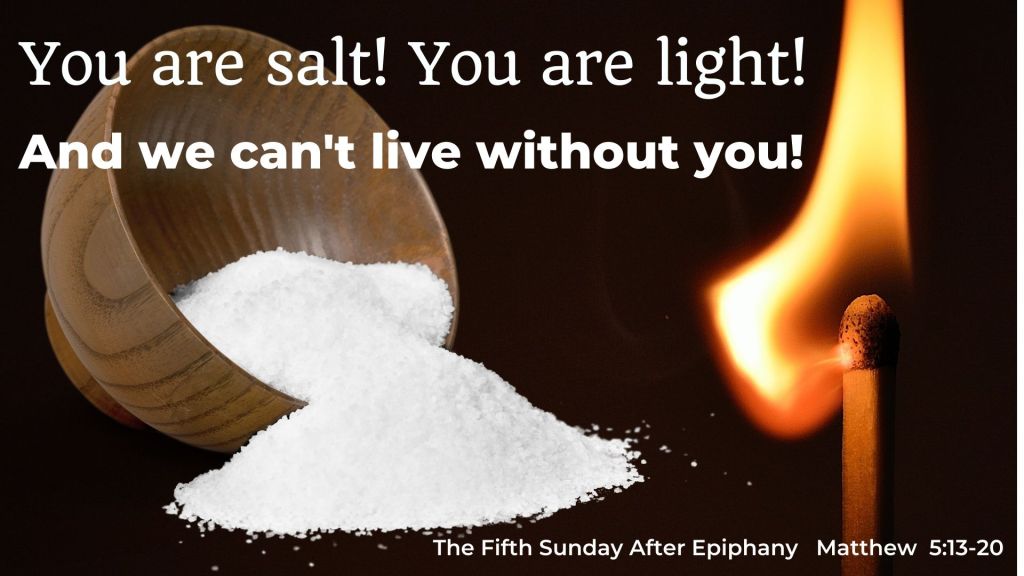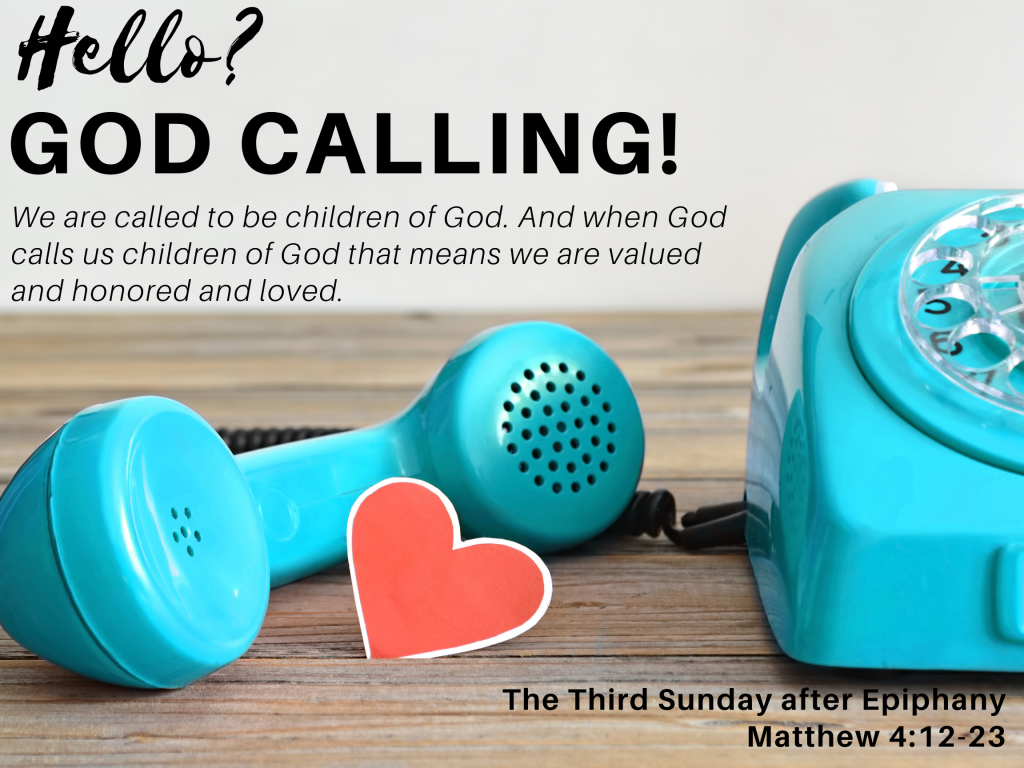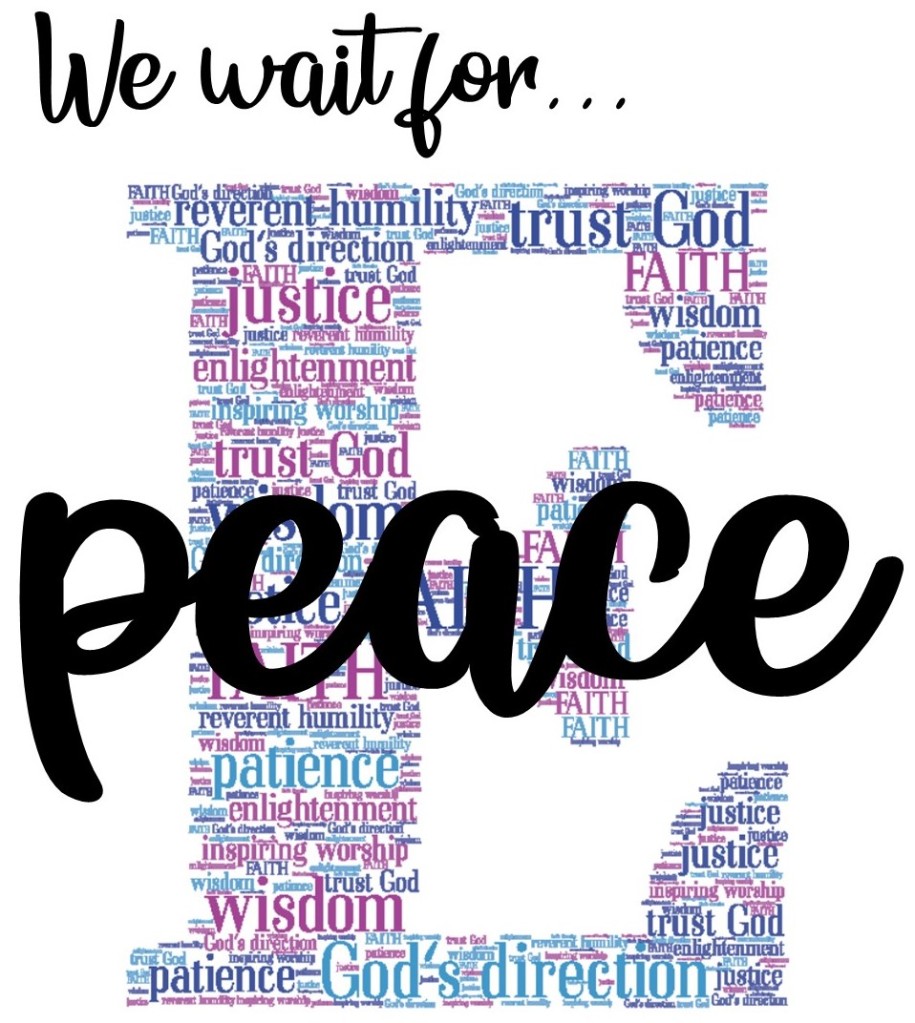
Jesus was ready for him.
Out there for in the wilderness, for 40 days and nights Jesus was out there fasting, preparing for what was to come.
Forty. Bible-speak for a really, really long time!
It rained for 40 days and nights on Noah and the ark.
40 years – how long the Israelites wandered in the desert.
40 days and nights – that’s how long Moses fasted while transcribing the 10 commandments on Mount Sinai.
40 days and nights – Elijah fasting in the desert before receiving his commission from God.
Out there in the wilderness, the Devil was waiting for Jesus with one thing on his mind – find a way to entice him to sin, to rebel against God’s plan, maybe to even find a way to cheat the plan. Out in the desert… no one will know.
Now, word about tempters. They can’t MAKE you do anything. Rather, they work by getting you to doubt yourself and to question yourself. They work to get you to question who you really are, to question what it is you REALLY trust.
So it is no surprise that is where the devil focuses – with Jesus’ identity.
IF you are the son of God – in other words, how do you REALLY know that you are the son of God? Can you trust him?
It worked one time before, did it not? Back in the Garden, that little incident with Eve? Adam and Eve had everything going for them – best neighborhood in the kingdom, best food, best of everything.
And yet, for them, something was missing. And that’s where the serpent gets them – he plays on their insecurity by telling them God didn’t give you the whole story, he’s holding something back and as a matter of fact, God wasn’t exactly trustworthy. You aren’t going to die if you eat this fruit but you will be like God.
That’s the devil’s plan. Get Jesus to doubt his own identity. Get him to suspect that God isn’t as trustworthy as he says he is. Get him to think he needs more.
Maybe that is part of the human condition – we just don’t feel complete, that we are not enough.
Is the something more out there what is missing in our lives? Then we will be enough? Then we could trust if our criteria are met? Because people around us are going to let us down – if not now, eventually?
If we could just find that perfect something to fill up the void, the emptiness, the hole (spell) that keeps us from being whole (spell).
Our identity is so much more that what we don’t have. What will it take for us to understand that?
Our second object of Lent in plain sight is bread.
What’s the first thing the devil uses to entice Jesus not to trust? To get Jesus to think that he’s not quite enough?
Bread.
For those among us who are on special diets that forbid carbs, and most importantly bread? What do you miss most? Just out of the oven, warm and delicious bread? And the smell…oh the smell! It’s just heavenly!
We might even call it bread from heaven!
Looking back to the Old Testament, there was another bread from heaven – manna! It literally fell from the sky each morning. The Israelites scooped it up and made bread.
God’s gifts each morning. A portion for just that day. No hoarding or it got wormy. God shows them, morning by morning for 40 years that God provides. God can be trusted. God says to them, you are my people and I am your God.
This was part of the humbling process as described in the book of Deuteronomy. Moses makes three addresses to the Israelites. In the first address, Moses reminds them that 40 years of manna prepared them. Humbled them by drawing attention to God’s sustaining presence with them during all 40 years.
Here’s the punch line to the first address about God’s actions: [God] fed them daily with manna “in order to make you understand that one does not live by bread alone, but by every word that comes from the mouth of the LORD.”
Here’s the interesting connection: Jesus quotes from chapter 6 and 8 in response to the devil’s three temptations. Jesus quotes from Moses’ first address.
Out in the wilderness, God humbles the Israelites, instructs the Israelites and strengthens the Israelites for 40 years.
Out in the wilderness, for Jesus it only takes 40 days for humbling, instruction and strengthening by God.
In Jesus baptism and what we heard from the cloud on the mountain last week, that is what gets conveyed to him – God identifies – “this is my son, the beloved, with him I am well pleased.”
It is also in our baptism that we are first called, “child of God,” and define ourselves by what we DO have – an ultimate and essential relationship with God that cannot be broken.
That is what the devil tries to do with Jesus and with us – break that relationship by getting us to call into question our trust and reliance on God.
Can we trust God for our nourishment?
Can we trust God to love and care for us?
Can we trust God enough to serve God and not some other gods?
Each time Jesus responds with an answer.
Live by every word that comes from the mouth of God.
Do not put the Lord your God to the test.
Worship the Lord your God, and serve only God.
Being baptized children of God is not like a magic elixir for the easy, pain-free life.
Being baptized children of God isn’t an inoculation. It doesn’t mean we are immune from ever doubting.
Being baptized children of God doesn’t mean that we won’t sin and fall short of the glory of God.
These struggles will still go on for us, there will be needs that will go unmet, that we don’t get a pass on having doubts and that there won’t be times when we’re restless because we feel that something is missing.
Being a baptized child of God means that we don’t have to do it alone.
Our baptism gives us a relationship with God and it is this relationship that helps us focus on what we DO have – God’s promises, gifts and grace. Most importantly, we have forgiveness and new life that was won for us at the cross.
A new life that comes from heaven, just like bread, and a promise that we can trust.
